UPDATE: May 8, 2023: After about a week of respite thanks to a court injunction, enforcement of the recently adopted Illinois assault weapons ban was healed, but after some legal ping-pong, the ban is back in effect.
Last week, Judge Frank Easterbrook of the U.S. 7th Circuit Court of Appeals put a hold on the lower court’s injunction from the previous week that halted the enforcement of the state’s strict gun ban.
District Judge Stephen Patrick McGlynn, who issued the injunction, said the gun ban violates the Second Amendment. His ruling also said the law restricts the right to self-defense, but that it also “completely obliterated that right by criminalizing the purchase and sale of more than 190 arms.”
The injunction was intended to put the law on ice until three federal lawsuits and a state lawsuit filed by gun rights groups and Illinois gun owners challenging it on constitutional grounds. Easterbrook apparently thinks it would be better for a potentially unconstitutional law to be enforced while the courts figure it out.
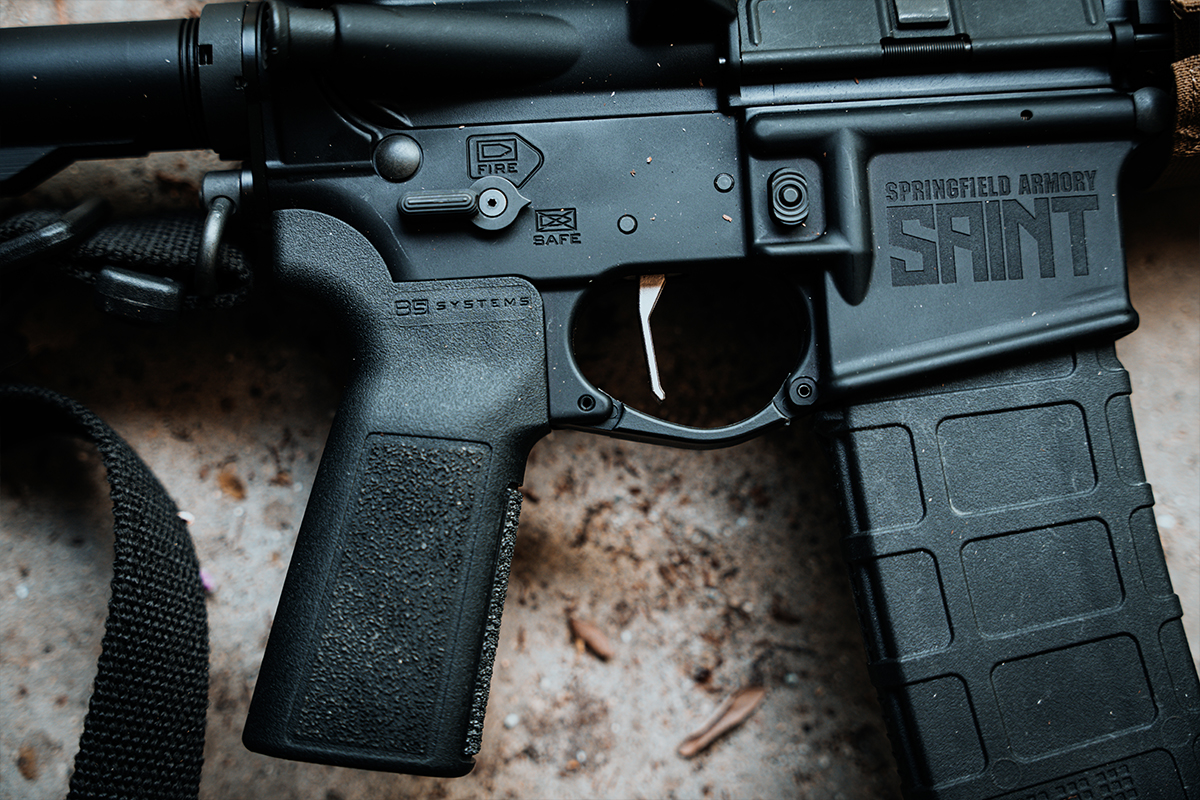
Gov. J.B. Pritzker signed the law in January. It included severe penalties for those who carry, possess, manufacture, sell, deliver, import, or purchase any “assault weapon or .50 caliber rifle.” Anyone who already owns what the state deems an assault weapon must register it with the Illinois state police.
The following content was published on May 4, 2023:
by Tim Cooper
A ban on so-called “assault weapons” and standard-capacity magazines died in the Colorado state legislature, while the Illinois assault weapons ban that went into effect recently has been halted by a judge pending the outcome of a court case.
These new developments suggest that, although Democrats hold majorities in Washington, D.C., and several state legislatures, lawmakers should not assume they have a mandate to tamper with the Second Amendment and long-held American traditions.
With anti-gun rhetoric heating up at the national level, and the flurry of gun-related bills making news in other states, such as Michigan and Washington, the gun debate and associated legal challenges are bound to take a front-row seat during the upcoming election cycle.
Colorado Bill Tips Over on the Launchpad
Despite holding solid majorities in both the state house and senate, Colorado lawmakers were unable to pass a sweeping ban on so-called assault weapons. After nearly 15 hours of debate in a packed public hearing on April 19, the house judiciary committee – in a 6–7 vote – failed to advance HB23-1230 to the house floor.

“I’m sorry that most Dem leadership does not want to ban assault weapons — yet. They never will, unless you make them,” tweeted Elisabeth Epps, the lone bill sponsor. “On we press.”
The bill would have banned the manufacture, sale, importation, and ownership transfer of firearms meeting Colorado’s definition of an assault weapon.
Rather than pointing to specific firearm brands and models, the language of the original bill relied upon a long list of functional characteristics to define firearms that fell under the category of banned assault weapons, including:
- Rifles capable of firing .50-cal. centerfire projectiles
- Rifles capable of firing a projectile that attains a muzzle energy greater than or equal to 12,000 foot-pounds in any combination of bullet, propellant, case, or primer
- Semi-automatic rifles capable of accepting a detachable magazine and that have a pistol grip, protruding foregrip, folding/telescopic stock, flash suppressor, and/or threaded barrel
- “Large-capacity” magazines that hold more than 15 rounds
- Semi-automatic rifles equipped with rapid-fire trigger activators
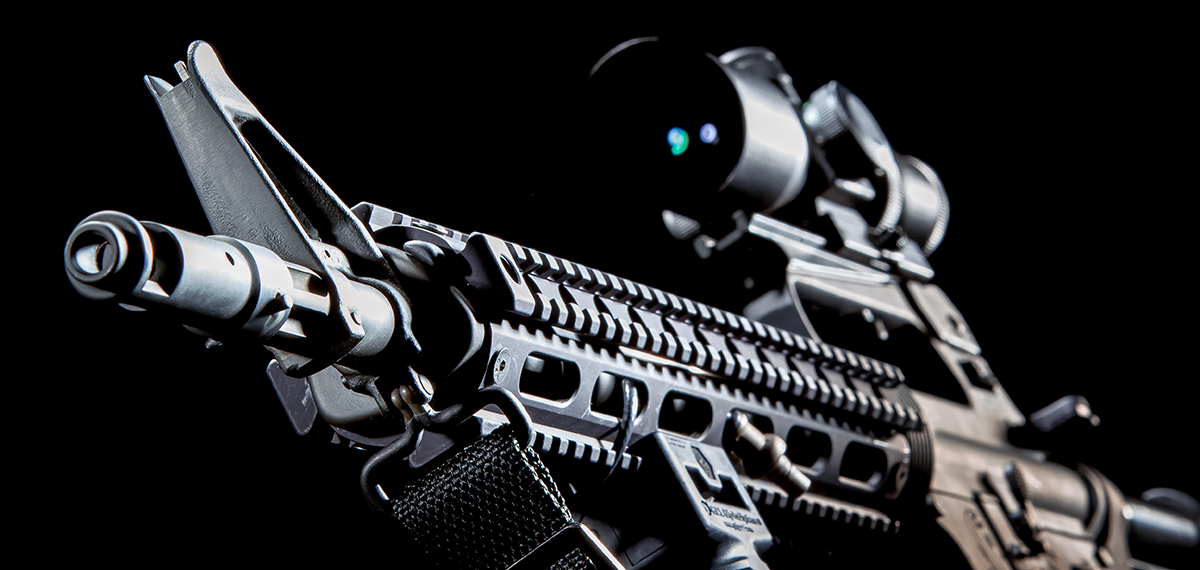
The hearing began at the state capitol in Denver at around 9:30 am. Nearly from the beginning, it was readily apparent that the bill, as written, was doomed.
In an effort to pacify three of her dissenting Democratic colleagues, Epps attempted to preserve the legislation by limiting the ban to bump stocks and forced reset triggers — add-on accessories the ATF has attempted to regulate in recent years. Debate on the amendment continued well past midnight, but, in the end, it served only to create further confusion and frustration — the pared-down version of the legislation failed as well.
One Democrat who voted to oppose the bill, Marc Snyder, said he had told constituents he’d work to reduce gun violence. “But the other thing I told them was that I had no interest in taking guns away from law-abiding citizens. And the bill, I believe, does.”
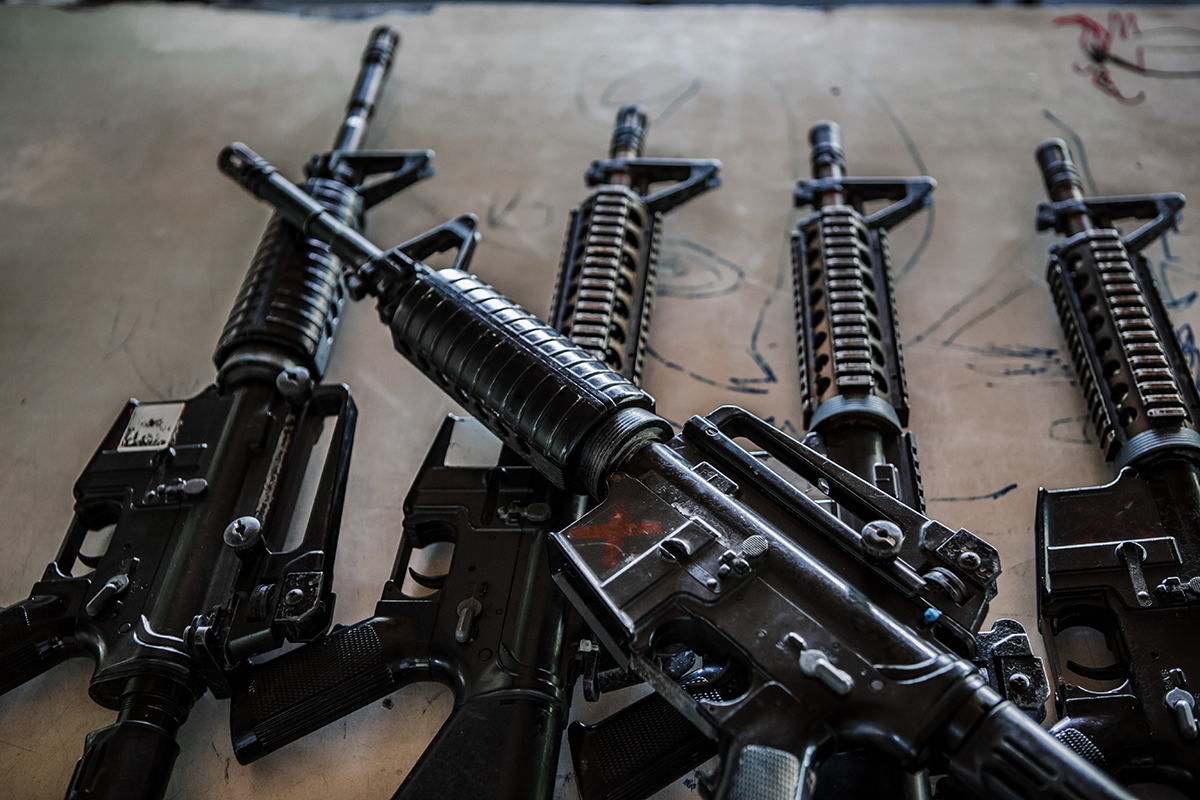
Gun rights advocacy groups have predictably applauded the defeat of the Colorado gun ban bill. According to the National Rifle Association Institute for Legislative Action (NRA-ILA), “Over 500 NRA members and Second Amendment supporters showed up to testify and thousands of messages were sent to lawmakers opposing HB 23-1230. NRA encourages lawmakers to tackle the real issue of crime, instead of focusing on law-abiding gun owners.”
GOOD GEAR – Embody the Ethos of the Quiet Professional With BRCC’s Silencer Smooth Roast
Illinois Gun Ban Takes Flight Directly into Stiff Legal Headwinds
The defeat of the Colorado bill was closely followed by a successful legal challenge to a similar assault weapons ban, the Protect Illinois Communities Act (PICA), that had passed in Illinois four months earlier. That lawsuit, brought by Guns Owners of America (GOA), secured an injunction that prohibits Illinois from enforcing the statewide ban.
The law, as signed by Gov. J.B. Pritzker, banned assault-style weapons in the Prairie State and required existing owners to register their guns with the state police – that is, until U.S. District Judge Stephen P. McGlynn in East St. Louis said “not so fast,” and blocked enforcement of the order.
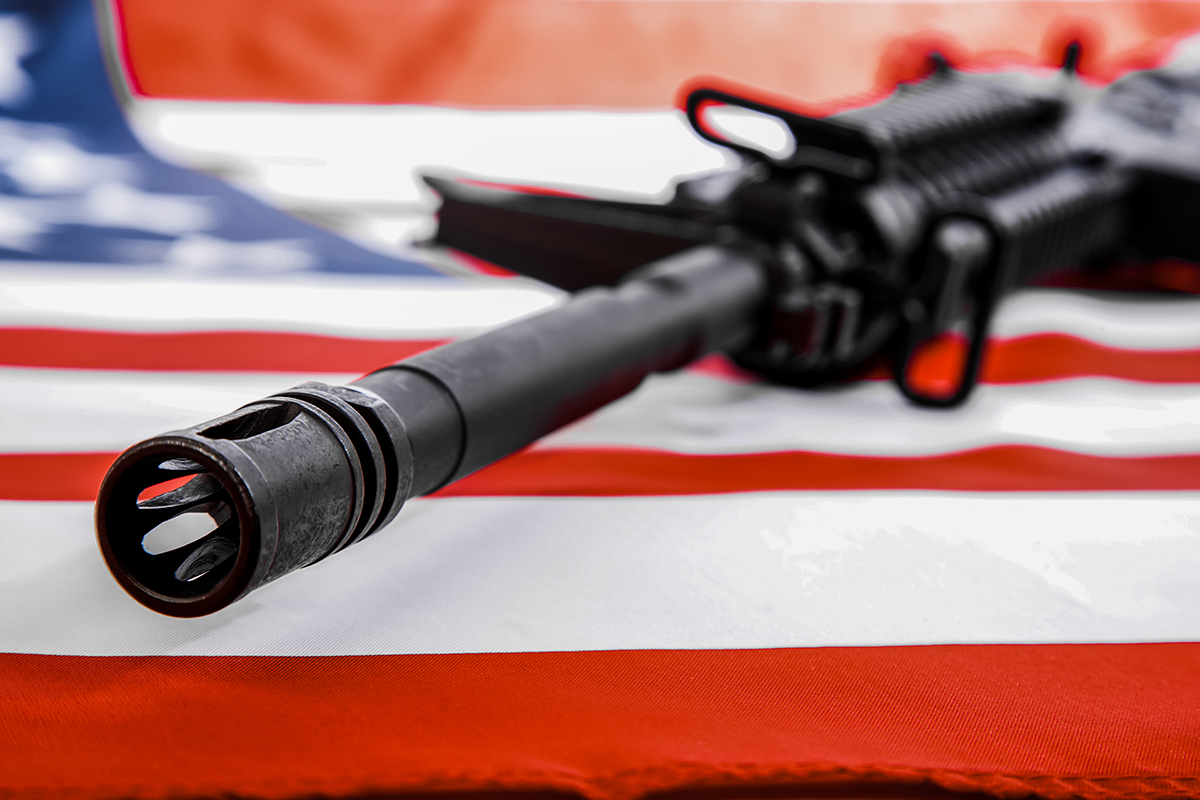
In his order, dated April 28, the judge made direct references to the “common use” metric outlined in recent decisions by the U.S. Supreme Court, calling out AR-15 style rifles as among the most popular arms ever produced.
“The Supreme Court in Bruen and Heller,” opined McGlynn, “held that citizens have a constitutional right to own and possess firearms and may use them for self-defense. PICA seems to be written in spite of the clear directives in Bruen and Heller, not in conformity with them.”
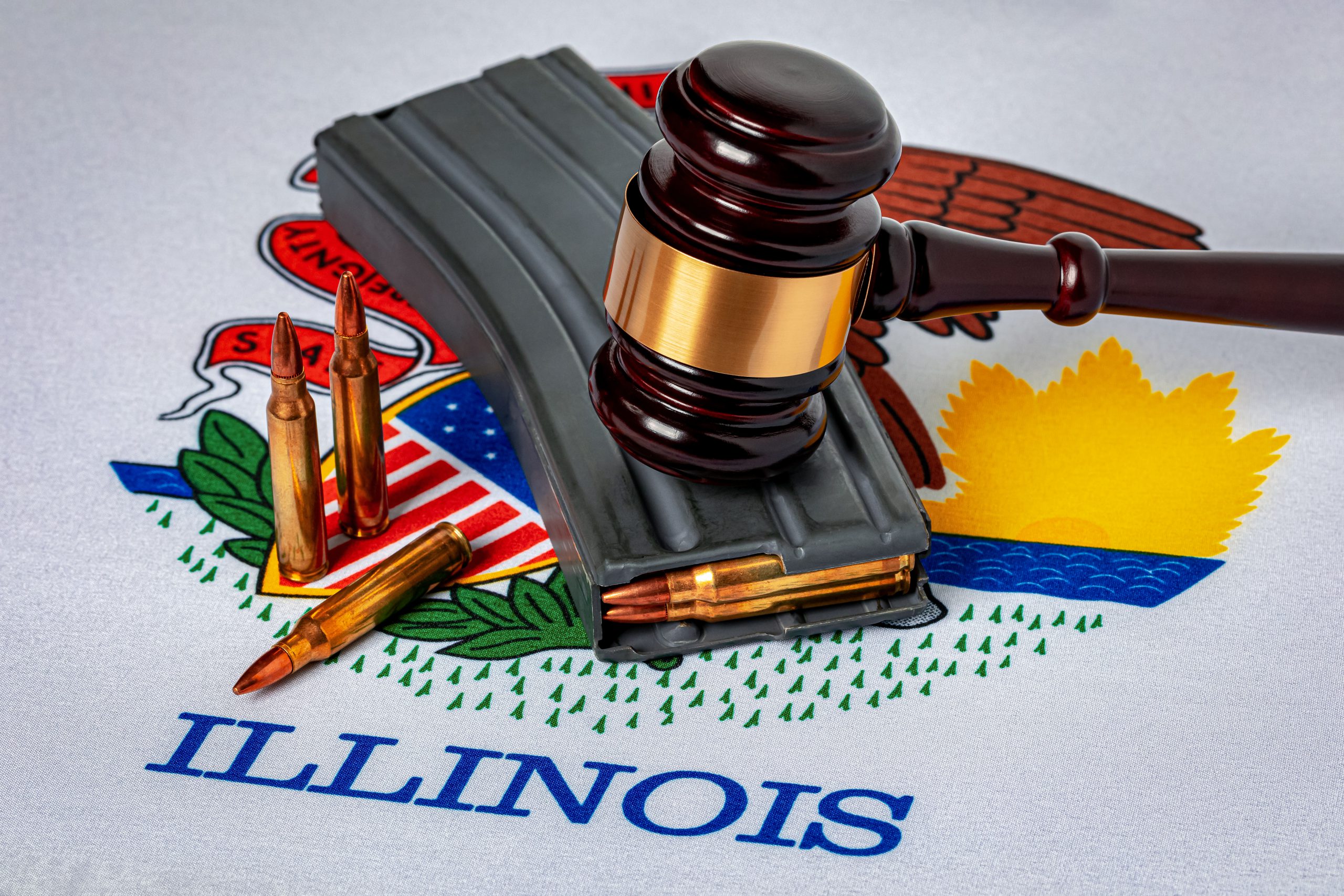
The injunction order also speaks to the 39 million Americans who legally own magazines holding more than 10 rounds, representing more than three times the population of Illinois. “Therefore,” wrote McGlynn, “both AR-15 style rifles and magazines with a capacity of greater than ten are ‘in common use’ and protected by the Second Amendment.”
In a press release posted on the GOA website, Eric Pratt, senior vice president wrote: “Governor Pritzker and his anti-gun cabal in the legislature thought they could steamroll the Second Amendment, and this ruling makes clear that they abused their authority and infringed on their citizens’ rights. We look forward to continuing this fight.”
READ NEXT – 450 Bushmaster: A Semi-Auto Hunting Powerhouse
The content below was published on Feb. 1, 2023.
Appellate Court Upholds Block on Illinois Assault Weapons Ban
by Daniel Terrill
Illinois gun owners can rest a little easier for the time being. On Jan. 31, an Illinois appellate court upheld a temporary restraining order (TRO) blocking the newly enacted assault weapons ban. In the 2-1 ruling, the court recognized the plaintiff’s argument that the law violates the equal protection clause in the state constitution.
An Effingham County judge granted the TRO last week to protect the hundreds of plaintiffs who signed on to the case from the law. They argued the law creates “different categories of citizens” because it allows some, like active and retired law enforcement and active military personnel, to continue to buy prohibited firearms and magazines. In response, the state argued that the “exempted categories were based on employment and/or training.”
However, the appellate court reversed the judgment on the plaintiff’s claims that lawmakers violated the state constitution by using a “gut and replace” approach to writing legislation. The lawsuit argued lawmakers introduced the measure under the pretense that it would amend the state insurance code and then failed to adequately review it before sending it to the governor’s desk on Jan. 11.
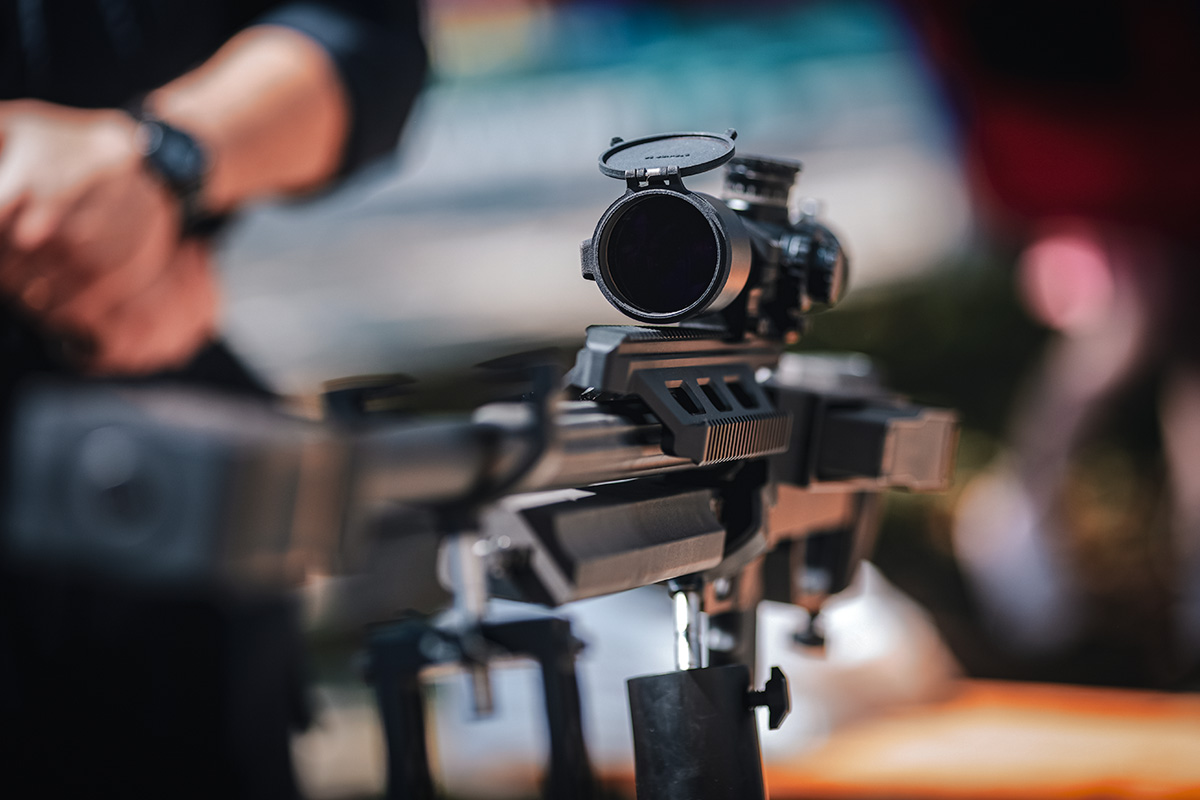
Yet, the judges said they are not “unsympathetic” to the concern and that they “find it extremely relevant” that lawmakers didn’t allow the public to advance competing interests before passing the measure. They explained it does not “appear that the legislative process allowed for even a moment of debate between the lawmakers to ensure that the enactment of this law was ‘narrowly tailored’ to effectuate the Act’s purpose in any manner that would allow a larger exempted group to retain their fundamental rights.”
In the lone dissent, the judge argued that the TRO must be reversed because the plaintiffs did not make a Second Amendment argument despite it being the basis of the lawsuit. In fact, during the hearing for the TRO, the plaintiff’s attorney said, “We are not making second amendment constitutional arguments here because those are for a different day and a different court,” according to the ruling.
In response, the judge wrote: “Because no issues related to the second amendment of the United States Constitution are before us, as they were not pleaded and were notably disclaimed by counsel for the plaintiffs, I believe our ruling on the grant of the TRO should in no way be interpreted as instruction or guidance as to any issues that may in the future be raised under the second amendment of the United States Constitution.”
The Illinois attorney general’s office, representing the state, already appealed the TRO to the Illinois Supreme Court.
RELATED — How To Comply with the New Pistol Brace Rule, According to the ATF
FOLLOWING CONTENT POSTED: JAN. 24, 2023
Illinois Assault Weapon Ban Update: Judge Temporarily Blocks Law
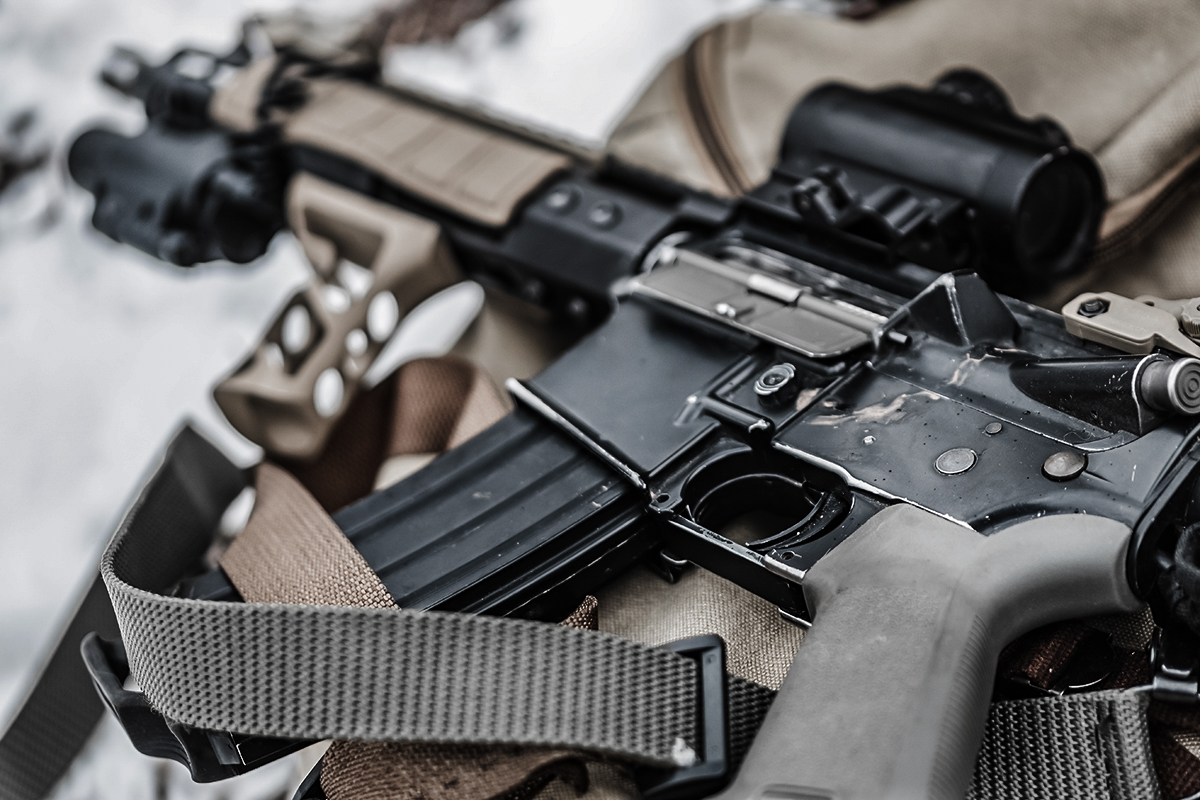
Last week, an Illinois county court approved a temporary restraining order (TRO) to block the state’s assault weapons ban from being enforced against the more than 1,500 plaintiffs who filed a legal challenge to the recently enacted law.
In the Jan. 20 order, Effingham County Judge Joshua Morrison agreed that lawmakers failed to follow legislative procedure and consider the constitutionality of the new law when they wrote it. “[D]ue to the speed with which this bill was passed, the effect to protected classes could not have been considered, nor could the Legislature have studied if this was the least restrictive way to meet their goal,” Morrison wrote in the order.
“We are well aware that this is only the first step in defending this important legislation.”
— Illinois Gov. JB Pritzker
State lawmakers wrote and passed the law in about six months. They prioritized it following the mass shooting in the Chicago suburb of Highland Park on July 4. Then they finalized the bill at the beginning of 2023 and the governor signed it on Jan. 10.
The Protect Illinois Communities Act expands the state’s gun laws to prohibit the sale of magazines capable of holding more than 10 rounds and any firearm that meets the definition of an “assault weapon.” The law defines the term as a semi-automatic firearm with a detachable magazine and at least one other specific feature.
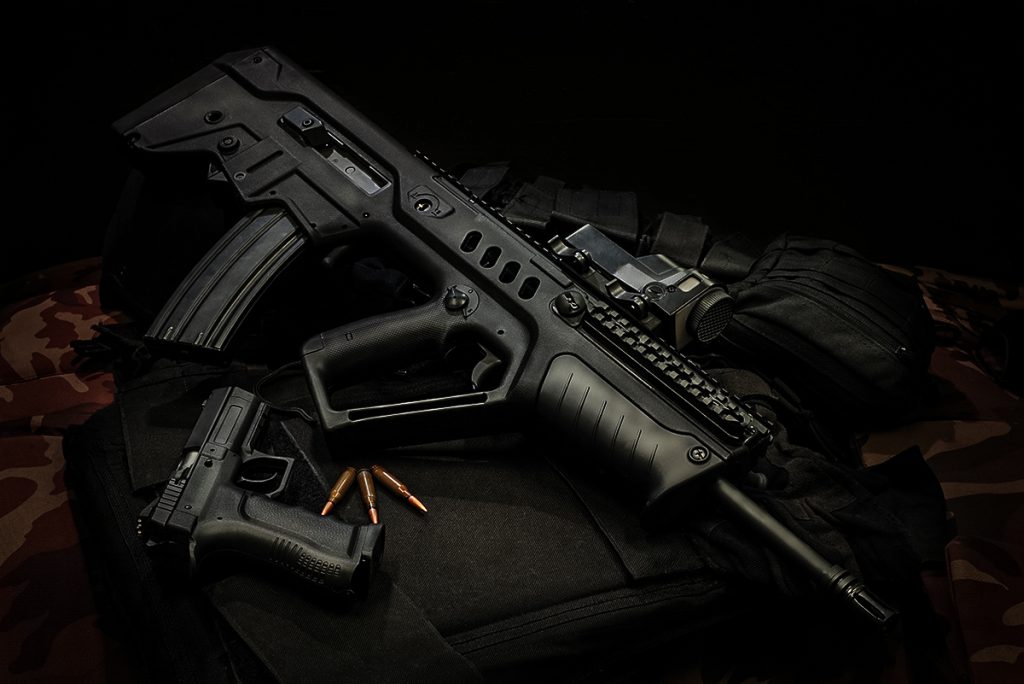
In response to the TRO, Illinois Gov. JB Pritzker issued a statement calling the ruling “disappointing” but “not surprising” to hear. “[I]t is the initial result we’ve seen in many cases brought by plaintiffs whose goal is to advance ideology over public safety,” he said.
“We are well aware that this is only the first step in defending this important legislation,” Pritzker added. “I remain confident that the courts will uphold the constitutionality of Illinois’ law, which aligns with the eight other states with similar laws and was written in collaboration with lawmakers, advocates, and legal experts.”
The lawsuit was spearheaded by former gubernatorial candidate Darren Bailey and represented by former Illinois attorney general candidate Thomas DeVore. In a statement, DeVore called it “an honor of my lifetime to play a role in representing the People against tyranny.” He predicts the case will be heard in front of the Illinois Supreme Court if not the U.S. Supreme Court.
The Effingham County case is the second legal challenge filed against the new gun law. The other was a federal case headed by the Illinois State Rifle Association and a handful of others.
In the state case, the court has scheduled a hearing for Feb. 1 and DeVore has requested an emergency hearing in a second lawsuit, but no hearings have been scheduled yet in the federal case.
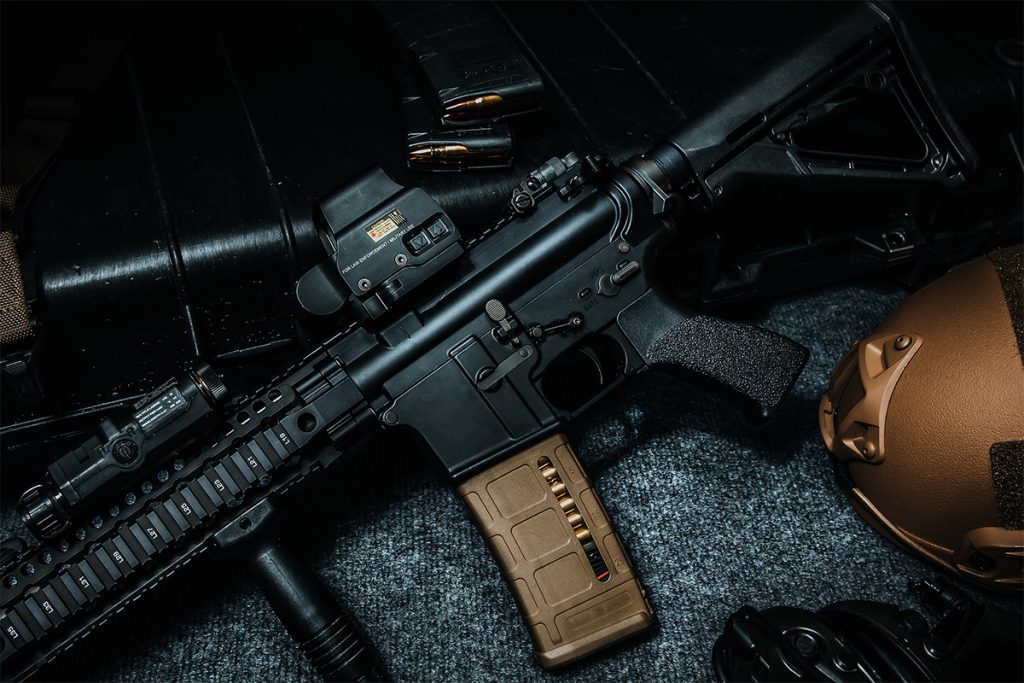
GOOD GEAR – Brew the Perfect Cup of Coffee With the BRCC 10 Cup Chemex
FOLLOWING CONTENT POSTED: JAN. 19, 2023
Update: Illinois Assault Weapon Ban Challenged in Federal Court
A group of gun rights activists filed the first federal legal challenge to the recently enacted Illinois assault weapons ban, arguing that the new law violates constitutional rights and prohibits commonly owned guns and magazines.
The plaintiffs say that the state law fails to meet the legal standards established by Supreme Court decisions New York State Rifle & Pistol Association v. Bruen and District of Columbia v. Heller, according to the Jan. 17 complaint filed in a federal court in southern Illinois.
They argue the Bruen decision requires governments to be “consistent with the nation’s historical tradition of firearm regulation” and allows individual conduct that aligns with the Second Amendment. They claim the Heller decision only allows governments to ban firearms that are “both dangerous and unusual.”
“By prohibiting Plaintiffs from possessing and carrying popular semiautomatic firearms and common ammunition magazines, Illinois has prevented them from ‘keeping and bearing Arms’ within the meaning of the (Second) Amendment’s text,” the lawsuit says.
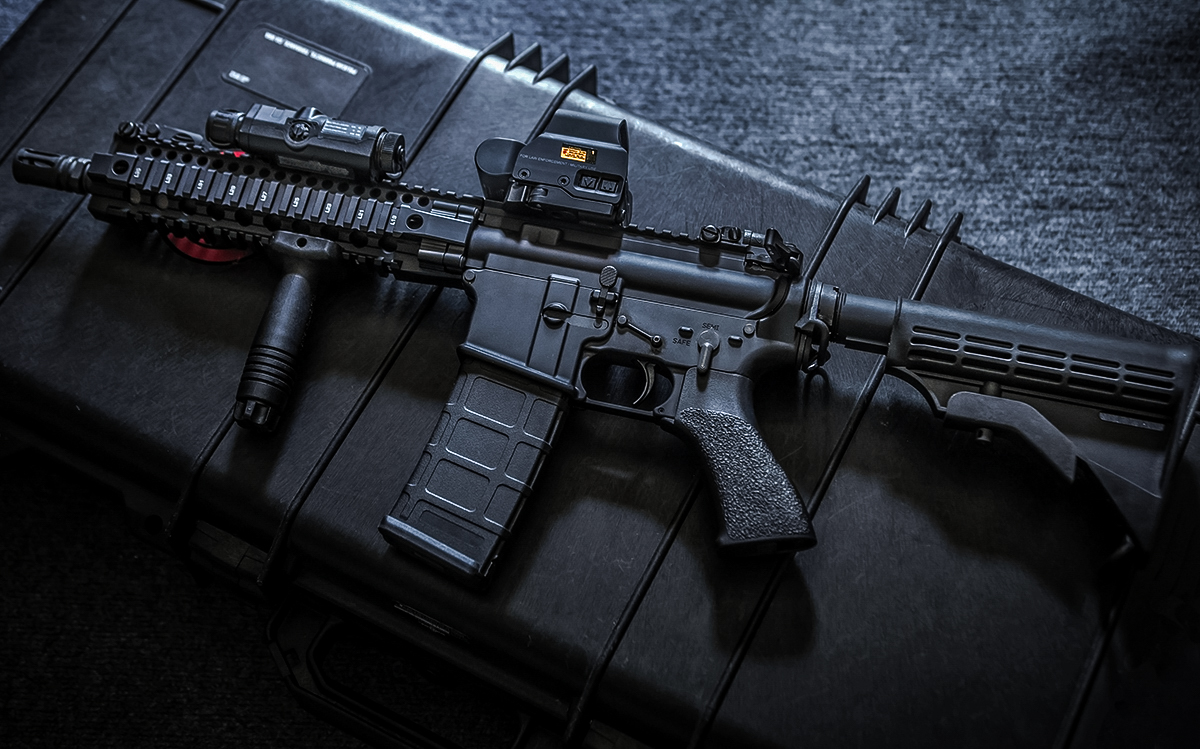
RELATED: ATF Drops New Pistol Brace Rule: It’s Not Good
Plaintiffs & Defendants
The plaintiffs in the case include the Illinois State Rifle Association; national gun groups the Second Amendment Foundation and the Firearms Policy Coalition; two state gun stores; and the lead plaintiff, Dane Harrel.
Harrel is a retired U.S. Air Force officer and ISRA member residing in St. Clair County, Illinois, according to the complaint. The lawsuit argues that the state’s new gun law will prevent him from buying the firearms he wants and replacing firearms and magazines he already owns.
Representing the group is attorney David Sigale. He has worked on several successful Illinois gun cases for the ISRA and SAF, including the Supreme Court case McDonald v. City of Chicago, a decision that overturned the city’s ban on handguns.
The complaint lists eight defendants, which include Illinois Attorney General Kwame Raoul and Illinois State Police Director Brendan Kelly. The remaining six are officials at the county level, including state attorneys and sheriffs.

GOOD GEAR — Pick-Me-Ups Aren’t Created Equal: Vanilla Bomb
Responses in the State
The lawsuit comes about a week after the law went into effect. Illinois State Gov. J.B. Pritzker signed the Protect Illinois Communities Act on Jan. 11, saying he and his political allies created “the strongest and most effective gun violence legislation” they could.
The new law defines an “assault weapon” as “a semiautomatic, centerfire rifle that can accept a detachable magazine” and has at least one of several features listed in the statute. It also bans long gun magazines capable of holding more than 10 rounds, and handgun magazines are limited to 15 rounds.
Since Illinois became the ninth state to implement an assault weapons ban, reactions have split along party lines. Republican lawmakers and a majority of Illinois sheriffs — including the three named as defendants — have reportedly said they disagree with the law and won’t enforce it.
RELATED — Barrett Firearms Acquired By Australian Group
Legal Analysis
Although the court has upheld multiple assault weapon bans, including at the local level in Illinois, legal scholars think the courts may side with pro-gun groups this time around.

UCLA law professor and author of the book Gun Fight: The Battle Over the Right to Bear Arms in America Adam Winkler told the Chicago Tribune that the 2022 Bruen decision makes it much more difficult for states to regulate guns purchased for home or self-defense.
In the Bruen decision, the Supreme Court ruled that law-abiding citizens do not need to show cause to exercise their gun rights in public. The decision also said any restrictions on gun ownership must align with laws that existed when the U.S. Constitution was drafted to be considered constitutional.
No trial dates have been scheduled yet, but the state has 21 days to respond to the complaint, which puts the deadline somewhere around mid-February.
FOLLOWING CONTENT POSTED: JAN. 11, 2023
Illinois Assault Weapons Ban: What’s In The New Law
- Many popular firearms banned from sale
- Rifle mags limited to 10 rounds
- Pistol mags limited to 15 rounds
- Law mirrors the 1994 Federal Assault Weapons Ban
On Wednesday, Jan. 11, Gov. J.B. Pritzker signed an Illinois assault weapons ban into law that, effective immediately, prohibits the sale and distribution of “assault weapons” and “high-capacity magazines” as defined by the new legislation. Gun owners who want to keep newly banned firearms must register them with the state well before the year is up.
Pritzker explained in a statement that his administration had been trying to craft “the strongest and most effective gun violence legislation” they possibly could, which resulted in the Protect Illinois Communities Act.

“I couldn’t be prouder to say that we got it done. And we will keep fighting — bill by bill, vote by vote, and protest by protest — to ensure that future generations only hear about massacres like Highland Park, Sandy Hook, and Uvalde in their textbooks,” he said.
According to the new state law, a firearm is considered an “assault weapon” in Illinois if it is “a semiautomatic, centerfire rifle that can accept a detachable magazine” and has at least one of a number of features listed in the legislation. That offending feature could be a folding stock, pistol grip, forward grip, muzzle device, grenade launcher, or others.
The law also specifically prohibits a number of firearms by name and defines “assault pistols” and “assault weapon attachments” as well.
Residents who already own firearms now considered “assault weapons” and wish to keep them have 300 days to register those firearms with the state police.
If some of this sounds familiar, it’s because the legislation was based on the Federal Assault Weapons Ban passed in 1994, which included a similar list of prohibited features. Other states have also created such a list in their gun-control laws. The federal ban expired in 2004.
In addition to banning assault weapons and mags, the new Illinois law imposes a number of other restrictions and rules, too. It will require “certain gun transfers” after July 1, 2023, to be filed with a federally licensed firearms dealer (FFL), though what that actually means is murky based on the text of the bill.
RELATED – San Jose Becomes the First U.S. City to Mandate Gun Insurance

What the ‘Protect Illinois Communities Act’ Does:
- Prohibits the sale and distribution of firearms that fit the definition of “assault weapon.”
- Requires gun owners to register all assault weapons with state police within 300 days; unregistered possession is a Class 3 felony on the first offense.
- Prohibits the manufacture, delivery, sale, purchase, or possession of a detachable rifle magazine with a capacity larger than 10 rounds. Pistol magazines are limited to 15 rounds. A violation is a Class 3 felony on the first offense.
- Prohibits “switches,” or kits that can convert a pistol into an assault weapon (although “switch” is not defined in the law).
- Prohibits a list of specific firearms by name.
- Allows a state attorney or assistant state attorney to assist the petitioner in requesting a firearm. restraining order. Also, extends a firearms restraining order from six months to one year.
- Bans bump stocks.
GOOD GEAR – Spartan Kick Your Tastebuds With the BRCC Ready To Drink 300 Vanilla Bomb
Responses to the Illinois Assault Weapons Ban

While many news reports point out that the measure was signed about six months after a deadly mass shooting in the Chicago suburb of Highland Park, lawmakers filed the bill in January 2022, and it has been working its way through both the state house and senate. It finally made its way to the governor’s desk on Jan. 10, 2023; it was signed the next day.
Gun control groups largely supported the new law, calling it a “lifesaving package” and “a major step in better-protecting families and communities.” Second Amendment advocates, on the other hand, were critical of the bill throughout the legislative process and promised legal action after it passed the state senate.
In a statement, the House Republican Leader-elect Tony McCombie argued the new law bans firearms with “little and, often, no linkage” to the mass violence that makes headlines. She called it a “poorly written piece of legislation” that “will likely be found unconstitutional.”
“They didn’t want us in there because they wanted to concoct an all-encompassing firearms bill that would take everything they could possibly get in one sweep.”
— Richard Pearson, Executive Director of the Illinois State Rifle Association
“House Democrats are throwing the state into chaos for law-abiding residents for the second time in the past month, beginning with the elimination of cash bail, and now with an immediate lame-duck gun ban of dozens of commonly used firearms,” McCombie said.
Richard Pearson, executive director of the Illinois State Rifle Association, said that gun rights supporters were largely excluded from crafting the bill during an interview with WGN.
“They didn’t want us in there because they wanted to concoct an all-encompassing firearms bill that would take everything they could possibly get in one sweep,” he said.
He explained that with the breadth of the new law, gun owners will have a difficult time meeting all the legal requirements. Therefore, he predicts the law “will not hold constitutional muster” because it’s “a primary civil right. It’s in the Bill of Rights.”
READ NEXT – Bump Stock Ban Reversed by U.S. Appellate Court





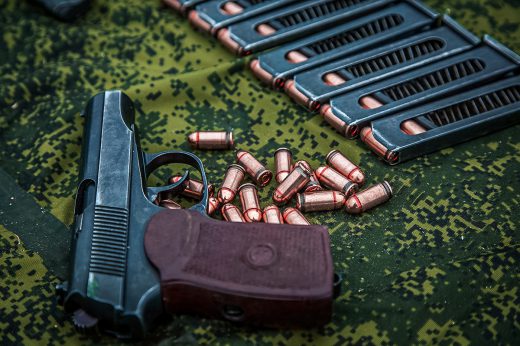
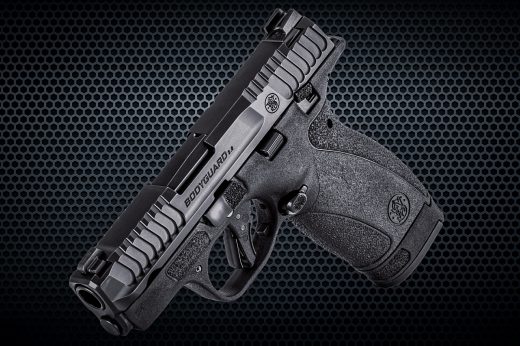
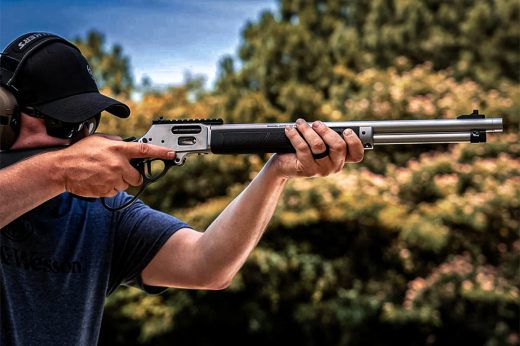


Comments